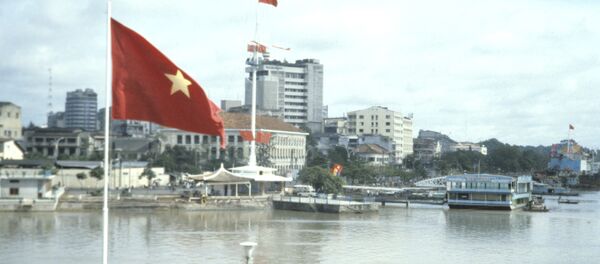The Vietnamese government aims to transform the country into a regional center for technology and innovation. An example of this is the ambitious project of a Silicon Valley, supported by the Ministry of Science and Technology.
Known for being a thriving center for the manufacturing of electronics for Korean and Japanese firms like Samsung, LG Electronics, Panasonic and Toshiba, the country will now focus on research activities, innovation and development.
Taking into account the efficient education system, government support, foreign investments and talented IT specialists, Vietnam has all the prerequisites to achieve its goals and become a high-tech leader in the region, the Asian Correspondent wrote.
A similar opinion has been expressed by the head of one of the largest Vietnamese MISA IT-companies, Li Thanh Long.
In an interview with Sputnik Vietnam, he noted that a high level of mathematical knowledge among Vietnamese youth and the growth of foreign investments in Vietnam are very encouraging. However, there are several obstacles that must be overcome at the state level.
"The education of our young people is more academic, non-practical, which prevents the creation of innovative products. Therefore, in order to educate a large number of highly qualified professionals, we need a radical modernization of the education system. However, the legal system in Vietnam is very complicated and creates obstacles to the opening of new businesses," Long said.
Research fellow at the Russian Center for Strategic Research Anton Tsvetov also believes that these issues could prove to be serious obstacles on the country's way to innovation.
"Innovation and high-tech growth is possible only in conditions of a developed private economy, including small and medium-sized enterprises. This requires a kind of institutional environment that will encourage private initiatives and ensure property rights, including intellectual property," he told Sputnik.
According to the expert, it would be difficult to combine a traditional system of economic regulation with the the explosive growth of innovation. Such growth will require a new level of economic freedom which should somehow be put in compliance with the political context of modern Vietnam — a creative task that the Vietnamese government will have to resolve in the near future, the expert concluded.




